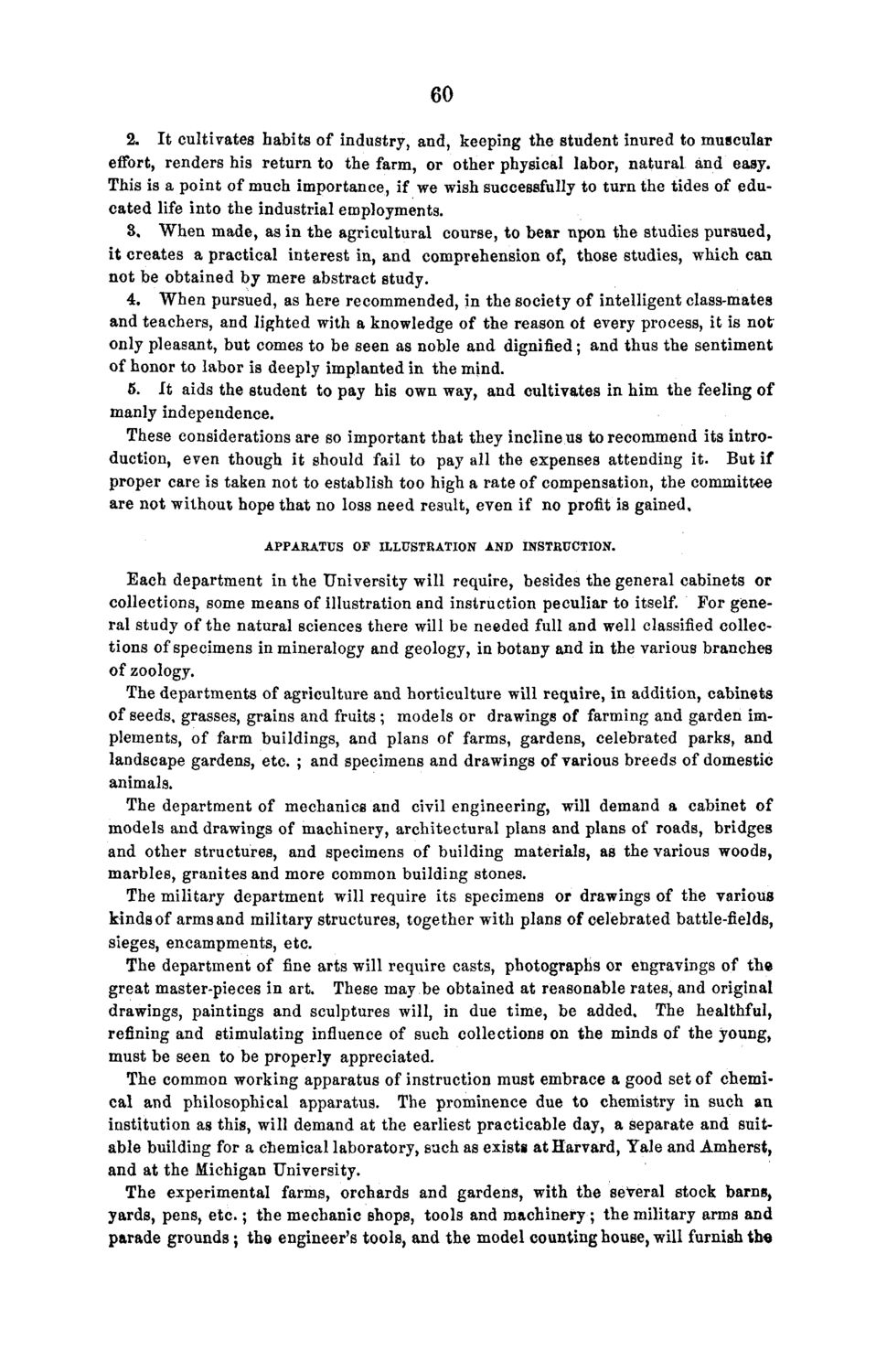| |
| |
Caption: Board of Trustees Minutes - 1868
This is a reduced-resolution page image for fast online browsing.

EXTRACTED TEXT FROM PAGE:
60 2. It cultivates habits of industry, and, keeping the student inured to muscular effort, renders his return to the farm, or other physical labor, natural and easy. This is a point of much importance, if we wish successfully to turn the tides of educated life into the industrial employments. 8, When made, as in the agricultural course, to bear upon the studies pursued, it creates a practical interest in, and comprehension of, those studies, which can not be obtained by mere abstract study. 4. When pursued, as here recommended, in the society of intelligent class-mates and teachers, and lighted with a knowledge of the reason of every process, it is not only pleasant, but comes to be seen as noble and dignified; and thus the sentiment of honor to labor is deeply implanted in the mind. 5. It aids the student to pay his own way, and cultivates in him the feeling of manly independence. These considerations are so important that they incline us to recommend its introduction, even though it should fail to pay all the expenses attending it. But if proper care is taken not to establish too high a rate of compensation, the committee are not without hope that no loss need result, even if no profit is gained, APPARATUS OF ILLUSTRATION AND INSTRUCTION. Each department in the University will require, besides the general cabinets or collections, some means of illustration and instruction peculiar to itself. For general study of the natural sciences there will be needed full and well classified collections of specimens in mineralogy and geology, in botany and in the various branches of zoology. The departments of agriculture and horticulture will require, in addition, cabinets of seeds, grasses, grains and fruits ; models or drawings of farming and garden implements, of farm buildings, and plans of farms, gardens, celebrated parks, and landscape gardens, etc. ; and specimens and drawings of various breeds of domestic animals. The department of mechanics and civil engineering, will demand a cabinet of models and drawings of machinery, architectural plans and plans of roads, bridges and other structures, and specimens of building materials, as the various woods, marbles, granites and more common building stones. The military department will require its specimens or drawings of the various kinds of arms and military structures, together with plans of celebrated battle-fields, sieges, encampments, etc. The department of fine arts will require casts, photographs or engravings of the great master-pieces in art. These may be obtained at reasonable rates, and original drawings, paintings and sculptures will, in due time, be added. The healthful, refining and stimulating influence of such collections on the minds of the young, must be seen to be properly appreciated. The common working apparatus of instruction must embrace a good set of chemical and philosophical apparatus. The prominence due to chemistry in such an institution as this, will demand at the earliest practicable day, a separate and suitable building for a chemical laboratory, such as exists at Harvard, Yale and Amherst, and at the Michigan University. The experimental farms, orchards and gardens, with the several stock barns, yards, pens, etc.; the mechanic shops, tools and machinery; the military arms and parade grounds; the engineer's tools, and the model counting house, will furnish th«
| |